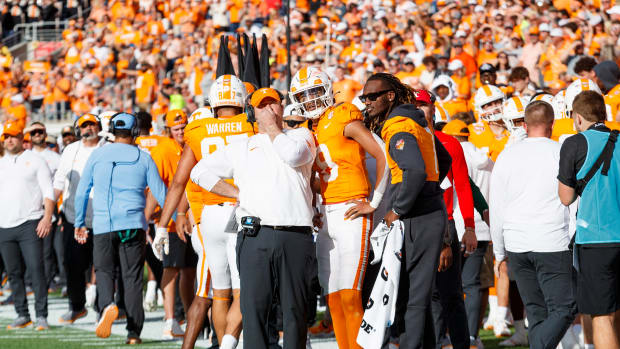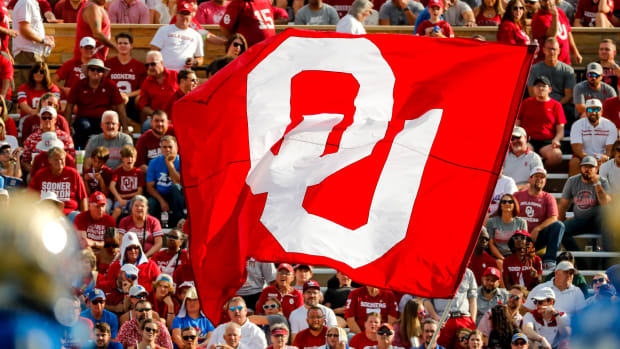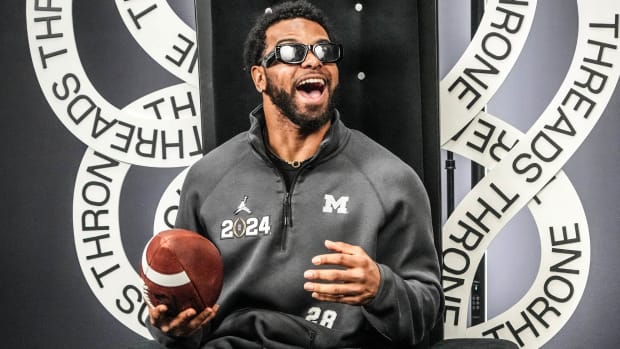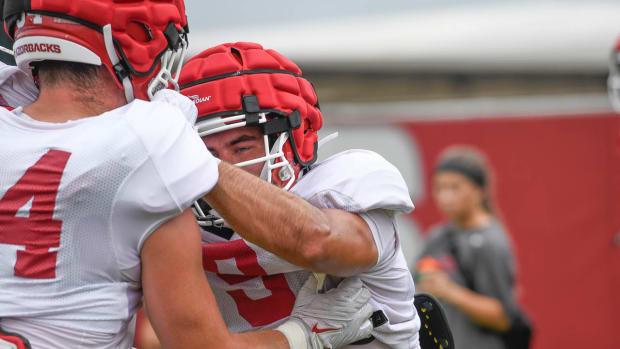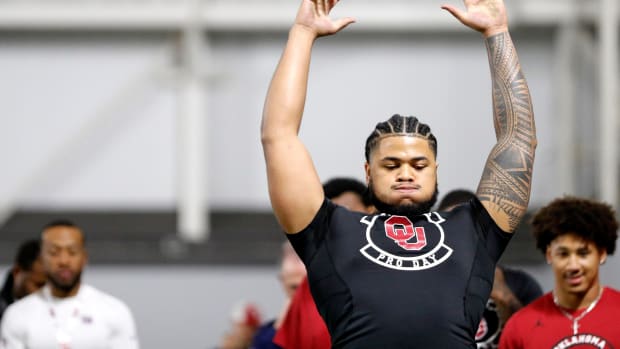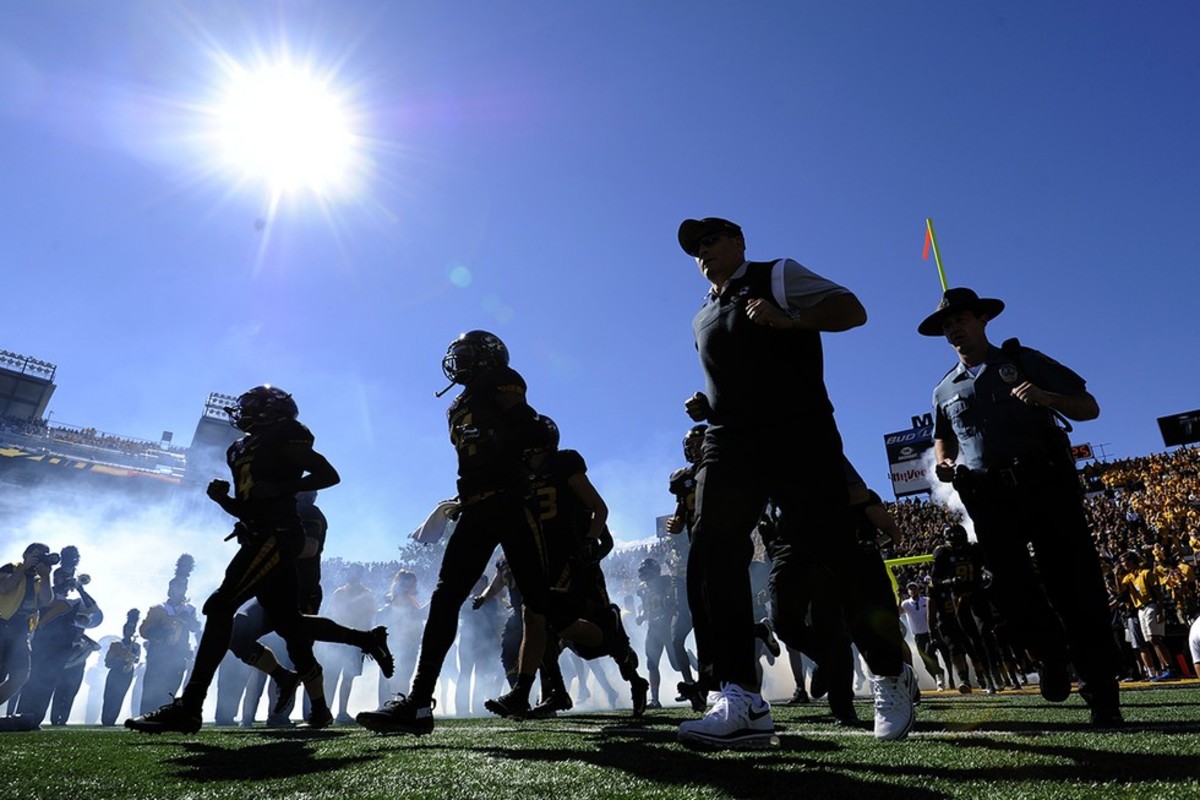
Not a black or white issue: Former Missouri football player shares his experiences, thoughts on protests
I love the University of Missouri.
My affection for the university goes back to my playing days as a wideout and long snapper at Raymore-Peculiar High tiny Peculiar, Mo., just south of Kansas City. On Friday nights in the fall, the towns of Raymore and Peculiar shut down to watch the Panthers. Football is what we had. Football is what we did. When I went to school there, people knew if you were on the three-time defending Class 5 state champs.
In some ways, however, the towns of Raymore and Peculiar were not accepting.
My skin color was often seen as inferior. As a black student, I regularly felt like I was expected to walk a certain way, talk a certain way, dress a certain way and listen to a particular genre of music. I did my best to grow up without falling victim to outside assumptions. I can't count the number of times in which friends or acquaintances would say that I act white, or that I'm black on the outside but white on the inside. There was almost an expectation: a "standard of blackness" that, somehow, I was supposed to meet. Not to mention dating white girls. Other people assumed that black kids would just band together and establish themselves on their own.
Enter the University of Missouri. Beginning in my junior year of high school, I knew Mizzou was the college I wanted to attend. That was mostly so I could play football, but also so I could study in Missouri's renowned journalism program. I was never recruited by Mizzou, but was certain that's where I wanted to go. When one of my best friends, former Missouri running back Derrick Washington, signed with the Tigers, I decided to contact Mizzou's player personnel staff and was given permission to watch practices. I determined I was willing to fight to earn my keep, even if that meant being a walk-on for five years. Ultimately, that's exactly what would happen.
(Terry Dennis, No. 80) L.G. Patterson/AP Images
As the years passed, I became involved in several organizations through Missouri's athletic department. Those included Fellowship of Christian Athletes (FCA), Student Athlete Advisory Committee (S.A.A.C.) and Community About Raising Excellence (C.A.R.E.). The sole purpose of C.A.R.E. was to create diversity awareness through community service and open discussion. We spoke about concepts similar to the ones at the center of what is happening at Missouri now. We worked to eliminate stereotypes, not to divide. The thought was not that we were underrepresented in the athletic department, but that sports are only one facet of the countless real-life experiences student-athletes share. I became the group's president in its second year of operation, and I had a voice in my community.
As the president of C.A.R.E., I never received backlash while pushing for cultural competency and inclusion. What I saw, though, was inaction—both black and white, to actually achieve progress. Though our group extended an open hand to those who weren't familiar with our goals, many shunned our ideas, feeling as if lots of issues would fix themselves if everyone just kept quiet. This, to us, was the problem.
During this time, I saw two major racial incidents, the first of which was a situation where two members of the school's ROTC program spread cotton balls around the Black Culture Center. The second incident happened when a white student spray-painted the word "nigger" on a statue outside one of the dorms on east campus. My thoughts during these times were simple: Someone needs to do something. The men responsible for both aforementioned incidents were arrested.
As the recent protests on campus began to unfold, which ultimately led to the resignation of University of Missouri president Tim Wolfe on Monday, I wondered why I wasn't the person who did something during my time in Columbia. I strongly felt—and still feel—that this issue goes far beyond Wolfe stepping down. For quite some time, there has been inaction, but it doesn't end there. The push toward cultural competency is far from finished, and we need to come together in an effort to find common ground.
During my time as a member of Missouri's football team, I played for coach Gary Pinkel. He taught us, on a consistent basis, to be men of character. Men of moral substance. Men that stood for something. Men of integrity. A team.
The young men who went on strike at Missouri this weekend are just that. They see the lives of student-athletes as being about something more than athletics, a game or a scholarship. They chose to stand united and equal. It's a statement that should be lauded, but it's only one step toward fixing the reality at Mizzou and elsewhere.
Michael B. Thomas/Getty Images
This is not a black
or white issue. It's a black and white issue, and the resignation of Wolfe shouldn't be seen as an end-all-be-all solution, nor as a cause for celebration. With one obstacle in the rearview mirror, the work isn't over. Problems still exist, and there is inaction on all sides—faculty and student, black and white. It took one brave voice to start this conversation, but the ensuing fight will not come easy.
Still, it's a fight worth having. It's what I pushed for during my time on campus, and it's the only way that significant change will come about. If this generation's voice of cultural competency and inclusion sparks a larger stance on race relations, I know this much: I am honored to shout M-I-Z from where it all began.
Terry Dennis played for the Missouri football team from 2007-2011. He joined the team as a walk-on and contributed to the Tigers on the offensive scout team. By the end of his college career, he was a wide receiver and backup long snapper.


